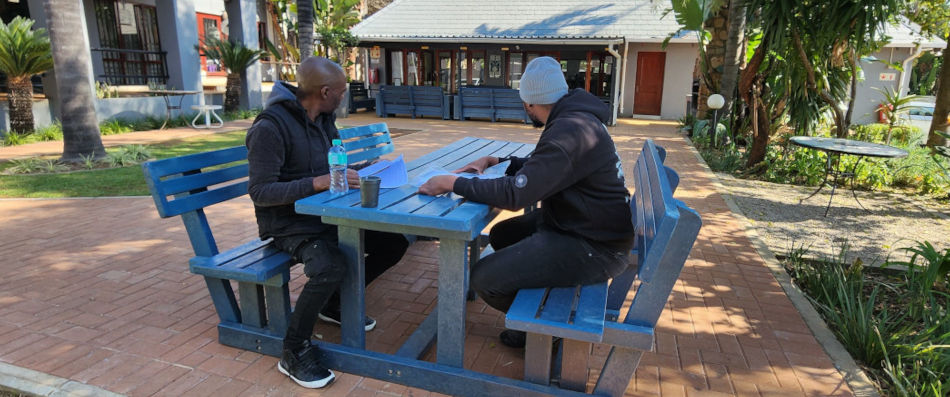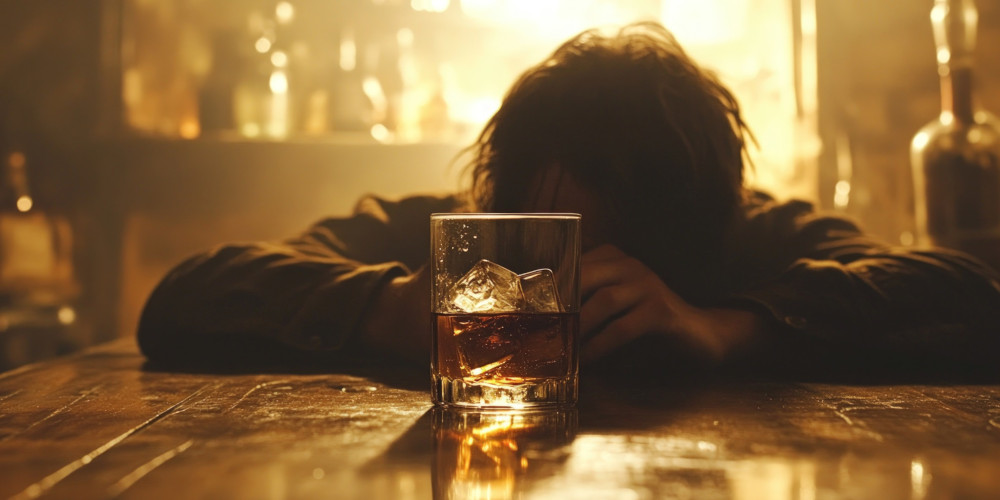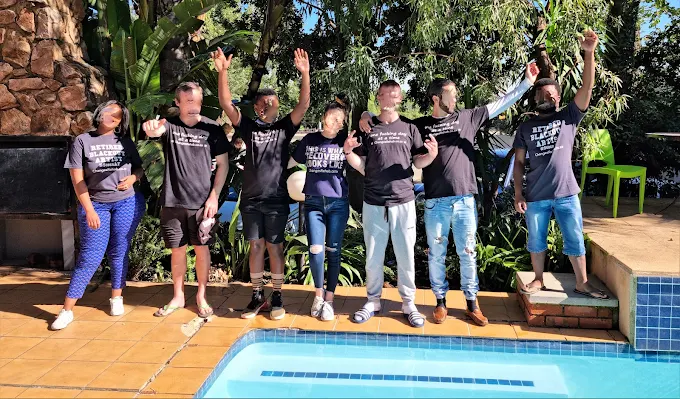
We provide confidential addiction treatment in Johannesburg that medical aids pay for. Our team of professionals delivers world-class, evidence-based care. Take the first step to recovery now.
Will Your Medical Pay for Addiction Rehab?
Check Now!
Financial anxiety should not block recovery. Let our specialist team verify your benefits quickly and confidentially.
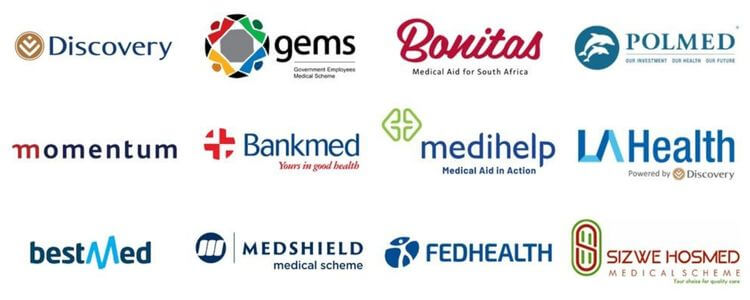
What Is Addiction (Substance Use Disorder)?
Addiction, or Substance Use Disorder (SUD), is a medical condition that changes the way the brain works. It affects motivation, judgment, and behaviour. Addiction is not a weakness or failure. It is a treatable health condition.
Addiction to alcohol and drugs or behaviours like gambling, sex and eating is persistent and prone to relapse. Patients have overwhelming cravings and urges to drink and use making it difficult to stop using drugs or alcohol despite the significant harmful consequences. This problematic pattern of drinking and using drugs affects health and well-being.
Addiction is:
Chronic:
Addiction is not a temporary condition. It’s is a long-term, ongoing disorder. It persists over time and needs to be managed over many years, even a lifetime.
Relapsing:
Even after periods of abstinence, individuals with addiction may relapse, returning to compulsive drug or alcohol use.
Compulsive:
The often irresistible urge’s to drink and use drugs, regardless of the negative consequences.
Has Adverse Consequences:
Wide-ranging harmful effects of addiction on a person’s physical and mental health, career, relationships, and overall quality of life.
The Spectrum of Addiction:
Mild:
Some impact, but functioning mostly intact
Moderate:
Noticeable problems in health, work, or relationships
Severe:
High loss of control, major health or social consequences
With the right addiction treatment in Johannesburg, recovery is possible at every stage. We have the full continuum of care and aim to be the last drug or alcohol rehab centre you’ll ever need.
Phases of Addiction Treatment in Johannesburg
Effective recovery requires structured treatment through various levels of support. We provide the full continuum of care in Joburg tailored to your specific needs, critically ensuring a seamless transition between the rehab phases as you progress in your recovery.
Defining the Levels of Treatment
| Phase of Treatment | Description | Ideal For |
| Detox (Medical Withdrawal) | Medically supervised, safe management of withdrawal management. This takes place in Primary Care, a structured environment to clear the body of addictive substances and manage acute symptoms. | Severe or moderate physiological dependence (e.g., alcohol, opioids). |
| Inpatient Primary Care (Residential) | 24-hour residential care with intensive, structured therapy and full-time support from our multidisciplinary team: GP, nurses, psychiatrist, psychologist, occuaptional therapist, social worker, addiction counsellor. | Severe SUD, dual-diagnosis cases, or those who space from high-risk environments. |
| Secondary Care (Residential) | A transition phase following inpatient primary care. Patients continue therapy and group work but with more independence and responsibilities. | Long-term recovery, reintegration, and skill-building before returning home. |
| Outpatient | Ongoing therapy, group sessions, and support with flexibility to live at home and continue work/life commitments. | Mild SUD, aftercare, or individuals with a strong local support system. |
| Halfway House / Sober Living | A sober-living environment that provides structure, peer support, and accountability while clients seek employment and fully rejoin the community. | Sustained recovery and solidifying new, healthy life habits. |
Addiction deeply impacts your quality of life. We know so much more about addiction today than we used to. We can see on brain scans how addiction affects the brains reward, learning and memory systems.
Drugs and alcohol release huge amounts of dopamine that used to create a feeling a well-being. Towards the end of addiction, people are drinking and using just to feeling normal. This powerful, unhealthy cycle can be stopped and a return to health living is possible.
Whether you have mild, moderate or severe addiction, help is available. Many of our addiction treatment in Johannesburg patients have polysubstance use disorder, where more than one substance is being used at the same time.
Symptoms and Risk Factors
Signs of Substance Use Disorder (DSM-5 criteria)
- Using more or for longer than intended
- Failed attempts to cut down
- Spending significant time obtaining, using, or recovering
- Cravings or strong urges to use
- Struggles at work, school, or home due to use
- Continued use despite damaged relationships
- Loss of interest in hobbies or social activities
- Using in risky situations (e.g. driving, at work)
- Tolerance (needing more for same effect)
- Withdrawal symptoms when not using
Take the “Am I Addicted” test.
Risk Factors
Addictions exact cause is not fully understood. We know it’s a complex condition influenced by genetics, family history, and emotional factors.
- Family history of addiction
- Mental health conditions (depression, anxiety, bipolar disorder)
- Trauma or adverse childhood experiences. Take the Adverse Childhood Experiences ACE test.
- Early exposure to substance use
- Stressful environments, unemployment, unstable housing
Co-Occurring Disorders
Addiction often occurs with other mental health issues. Integrated treatment is essential. At Changes Addiction Rehab, our clinical team addresses both substance use and mental health needs together.
Diagnosis and Assessment
How Diagnosis Works
Diagnosing addiction requires more than a drug test. A thorough evaluation is done by a psychiatrist, psychologist, or licensed addiction counsellor. Tests such as urine or blood screens may be used, but these are for monitoring, not diagnosis.
What Professionals Use
Most clinicians follow the DSM-5 criteria to determine severity. At least two symptoms in a 12-month period indicate SUD.
What to Expect at Changes – Addiction Treatment in Johannesburg
We’re recognised as a trusted provider of medical aid rehab in South Africa, ensuring you can access treatment without financial barriers.
On admission, we conduct:
- A medical and psychiatric assessment
- Substance use history and withdrawal risk evaluation
- Mental health screening for co-occurring conditions
- Discussion of treatment goals and family involvement
This allows us to create a personalised care plan.
Options for Addiction Treatment in Johannesburg
Treatment is not one-size-fits-all. Our programmes combine medical, psychological, and social care. Our programmes include both drug rehab in Johannesburg and evidence-based alcohol rehab in Johannesburg, tailored to your individual needs.
Detox / Withdrawal Management
Addicts and alocholics search for inpatient detox Johannesburg because withdrawal symptoms can be difficult to manage safely without medical support.
- Medically supervised to ensure safety
- Monitoring of vital signs and mental wellbeing
- Medications used when appropriate to ease withdrawal (e.g. for alcohol, dagga, meth, cocaine or opioids)
- Tailored approach for different drug categories (depressants, stimulants, opioids)
Inpatient / Residential Care
- 24/7 clinical support in a structured environment
- Daily therapy (individual, group, and family)
- Education on addiction and coping skills
- Activities for physical and emotional healing
Outpatient Programmes
- For patients unable to step away fully from work or family
- Scheduled therapy sessions while living at home
- Continued access to medical and psychological support
Therapy Approaches
- Cognitive Behavioural Therapy (CBT): Identifying triggers, building coping strategies
- Motivational Enhancement Therapy: Increasing readiness for change
- Family Therapy: Restoring communication and support within the family unit
- Group Therapy: Peer connection to reduce isolation and shame
Medication-Assisted Treatment (MAT)
Where appropriate, medicines may be used to manage cravings and reduce relapse risk. Options include naltrexone, buprenorphine, or acamprosate. MAT is always combined with counselling and support.
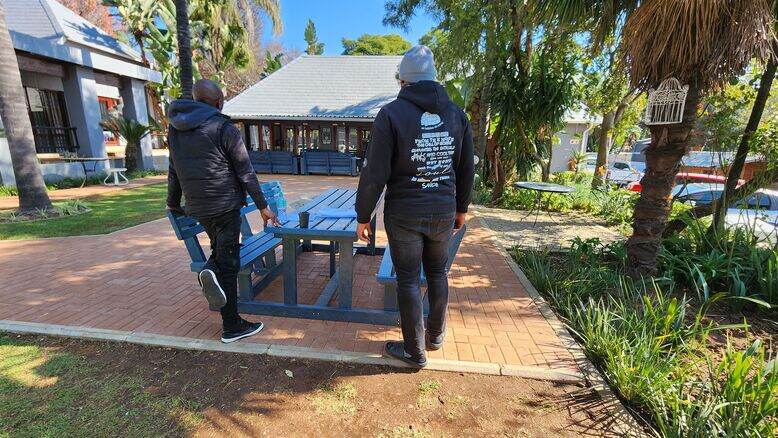
Aftercare and Relapse Prevention
Addiction is a chronic condition, and treatment continues after discharge. Changes Rehab provides:
- Personalised aftercare plans
- Relapse prevention strategies
- Ongoing therapy or support groups
- Skills for managing stress and high-risk situations
Relapse does not mean failure. It is a signal to re-engage with treatment and support.
Coping and Support
Recovery done solo is rarely succesful. It’s a collaboration between you and your clinical team, your loved ones and other recovery partners. We encourage patients to:
- Attend peer groups like AA or NA
- Family addiction therapy to heal relationships
- Build new routines and coping strategies
- Access community resources for long-term recovery
Preparing for Your Appointment
Facing treatment can feel overwhelming. Here’s how to get the most out of your first appointment:
Before You Arrive
- Be honest about your substance use history
- Make a list of all medications, vitamins, or supplements
- Write down questions or concerns
- Bring a trusted friend or family member for support
Questions to Ask
- What is the best addiction treatment in Johannesburg for me?
- Will I need inpatient or outpatient care?
- What therapies are available?
- Is medication-assisted treatment recommended?
- Will my medical aid cover addiction treatment?
- What long-term support is available after discharge?
What We’ll Ask You
- Which substances you use, how much, and how often
- When you first started
- Any attempts to stop and withdrawal symptoms experienced
- How substance use has affected your work, relationships, or health
- Whether family or friends have raised concerns
This two-way process helps build a clear treatment plan tailored to you.
Outlook and Prognosis
Addiction is treatable. Research shows outcomes improve with structured programmes and continued support. Relapse rates are similar to other chronic illnesses like asthma or diabetes. With effective addiction treatment in Johannesburg, many people regain health, restore relationships, and build meaningful lives in recovery.
| Key Fact | Significance for Your Recovery |
| Relapse Rates | In South Africa and globally, relapse rates for addiction are estimated at 40–60%, similar to other chronic conditions like diabetes or hypertension. A relapse does not mean treatment has failed but signals the need for renewed support and adjustment of your care plan. |
| Treatment Effectiveness | Studies consistently show that individuals who remain in addiction treatment in Johannesburg for the entire duration have a significantly higher chance of sustained recovery compared to those who drop out. Treatment duration of 90 days to 12 months is often cited as greatly improving outcomes and mental health stability. |
| South Africa Context | Research from the South African Medical Journal highlights that co-occurring depression and trauma are common in South Africa. Addressing these alongside addiction (dual diagnosis) significantly improves long-term outcomes, which is a core focus of Changes Addiction Rehab. |
| Long-Term Prognosis | Sustained recovery is most likely when treatment includes medical care, counselling, peer support, and detailed relapse prevention planning. With the right treatment and follow-up, many people achieve years of sobriety and successfully rebuild relationships, careers, and health. |
Frequently Asked Questions
Is addiction curable?
Addiction cannot be “cured,” but it can be managed. With the right treatment, long-term recovery is possible.
Does relapse mean failure?
No. Relapse is common and signals a need for renewed support.
How long does treatment last?
Detox may take several days. Inpatient programmes for addiction treatment in Johannesburg usually last weeks, with aftercare continuing for months or years.
Will medical aid cover treatment?
Yes, medical aids in South Africa cover addiction treatment in Johannesburg. Our admissions team can check your specific scheme.
What if my loved one refuses help?
We provide professional intervention support to guide families.
Where can I find addiction help in Johannesburg?
Changes Rehab offers inpatient, outpatient, and family programmes, all designed to support lasting recovery.
Why Choose Changes Rehab for Addiction Treatment in Johannesburg
Expert staff:
Psychiatrists, psychologists, social workers, counsellors
Evidence-based care:
International best practices adapted for South Africa
Safe, supportive environment:
Accredited facility in Randburg, Johannesburg
Comprehensive programmes:
From detox to aftercare
Proven reputation:
Decades of experience helping patients and families
Evidence-based Principles of Effective Addiction Treatment
| Key Element of Integrated Care | Research Findings |
| Completing Treatment | Studies consistently show that individuals who remain in addiction treatment in Johannebsurg for the entire duration have a significantly higher chance of sustained recovery compared to those who drop out. Treatment duration of 90+ days is often cited as greatly improving outcomes and mental health stability. |
| Continuing Care/Aftercare | Research supports the efficacy of continuing care (active aftercare/follow-up) for both adolescents and adults. Interventions with a longer planned duration (e.g., at least 12 months) and active efforts to engage patients produce more consistently positive results than minimal or no continuing care. |
| Family/Significant Other Support | Treatments that integrate family members or significant others are associated with significantly better substance use outcomes and lower rates of relapse compared to individual therapy alone. This benefit often persists for up to 18 months post-addiction treatment in Johannesburg. |
| Integrated Treatment for Dual Diagnosis | Programs that treat co-occurring mental health disorders (dual diagnosis) and substance use disorders concurrently achieve better outcomes and reduced long-term relapse vulnerability than fragmented, non-integrated care. |
| Conclusion of Data | The highest addiction recovery success rates (often cited in the 50%-72% range) are found in programs that combine multiple treatment approaches—the very definition of an integrated model (inpatient, therapy, MAT, and support networks). The risk of relapse drops dramatically after 5 years of continuous recovery to less than 15%. |
The value of combining structured inpatient care with essential long-term elements like aftercare and family support is one of the most reliable findings in addiction science.
Get Help Now
You don’t need to wait until things get worse. The sooner you reach out, the better chance you have. For addiction treatment in Johannesburg, contact us today.
📞 Admissions: 081-444-7000
📧 Email:[email protected]
📍 Visit: 216 Weltevreden Road, Northcliff, Randburg, Johannesburg
We’re waiting for your call.
Changes Addiction Rehab is registered with the Department of Social Development and Department of Health
